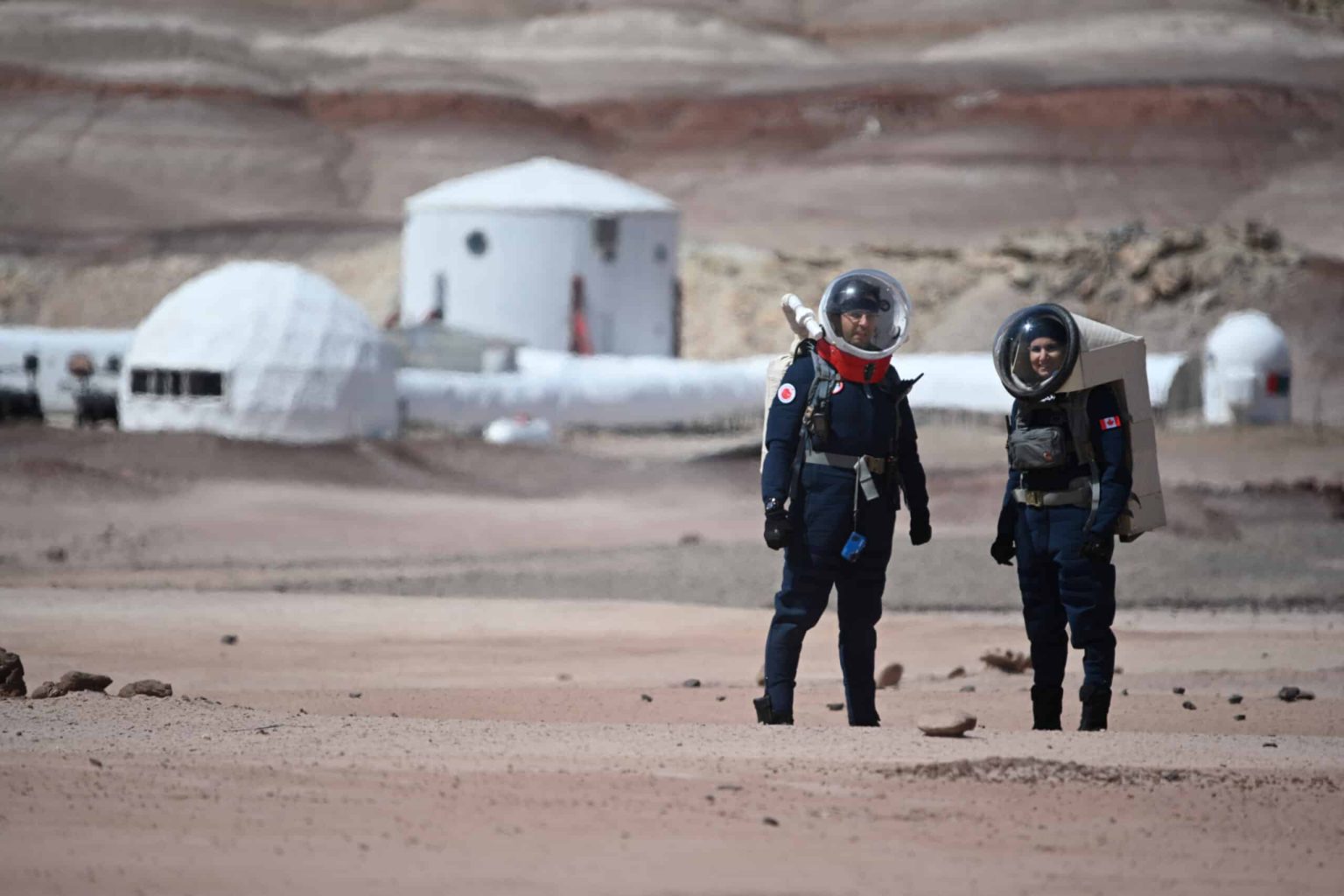Summarize this content to 2000 words in 6 paragraphs
Crew members conduct a simulated survey at the Mars Desert Research Station in Utah. (Mars Society Photo)
What’s the best route to the Red Planet? Hundreds of people are converging on Seattle this week to consider that question at the annual convention of the Mars Society. And the answer may come, at least in part, from an array of tech startups.
“The route to get to Mars is commercial,” James Burk, the nonprofit advocacy group’s executive director, told GeekWire. “The new-space sector is critically important to Mars exploration, both robotic and human.”
Burk said the Mars Society’s 27th annual convention is expected to bring at least 250 to 300 people to the University of Washington starting on Thursday. “We’ve offered it for free to students at U Dub,” he said.
Dozens of sessions are planned, focusing on topics ranging from NASA’s Mars exploration strategy to private-sector concepts for Mars settlements.
There’ll also be an update on the society’s plans to establish a Mars Technology Institute, potentially in the Pacific Northwest. The institute’s objective would be to foster startups that could develop the technologies needed for a long-term campaign of Mars exploration and settlement — and make money in the process.
One stealthy artificial-intelligence startup is in the works in advance of the institute’s launch. “We’re building a system that will let people do space research,” Burk said. “It’s like a space-domain knowledge system. We also have some features that are like avatars. … We’ll have a demo about it at the conference, and we are actively soliciting investment for that.”
Other ventures could focus on biotech and energy applications. “We’re just trying to provide support for people who want to start companies around a really good idea that’s going to result in a successful product or service — something that we could use on Earth, but that is also directly helping us settle Mars,” Burk said.
Some of the presenters at the conference are already part of the space startup scene. Among the companies represented on the program are Marysville, Wash.-based Gravitics (which has raised millions of dollars to build space station modules), Seattle-based GravityLab (which is developing satellite systems capable of creating artificial gravity) and Kent, Wash.-based Stoke Space (a rocket company backed by Microsoft co-founder Bill Gates).
Other speakers include the Mars Society’s founder and president, Robert Zubrin; Pete Worden, chairman of the Breakthrough Prize Foundation and executive director of the foundation’s Breakthrough Initiatives; Howard Hu, director of NASA’s Orion crew capsule program; and Alan Stern, principal investigator fpr NASA’s New Horizons mission to Pluto and the Kuiper Belt.
Burk noted that the Mars Society’s reach extends around the globe. Convention-goers will be able to get updates on the society’s Mars analog habitats in the Utah desert and the Canadian Arctic, and hear about efforts to create similar testing grounds in Africa and Mongolia.
The convention isn’t merely about sitting in a lecture hall, or watching virtual sessions on a computer screen: The schedule includes the premiere of a documentary about the Astro Seven Summits project; the debut performance of a Verdi-inspired musical composition titled “Mars Pensiero”; and an evening at the Burke Museum, co-hosted by the Mars Society and Seattle Space Happy Hour.
This week’s event marks the first time that the Mars Society has brought its annual convention to Seattle. Could the Jet City become a Mars City as well? Burk, who has lived in Seattle since 1998 and worked at Microsoft for more than 20 years, said Seattle has nearly everything that’s needed to become a prime stopping point on the route to Mars.
“We have the companies, the universities, the tech talent, the young talent. The Pacific Northwest National Lab is here. We have a legacy of aerospace,” he said. “The Redmond Space District is now the No. 1 satellite manufacturing center in the world. We have all the ingredients to be a global space center, except for a NASA presence. So, as a region, that’s what we want to work on.”
The 27th Annual International Mars Society Convention will run from Aug. 8 to 11 at the University of Washington’s Husky Union Building. Check the Mars Society’s website for information about the schedule and registration. The mainstage conference sessions will be livestreamed via the society’s YouTube channel. Alan Boyle will serve as the moderator for a virtual session at 10 a.m. PT Friday, focusing on NASA’s Mars exploration strategy.


